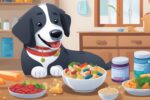Caution! These Are the Toxic Foods for Dogs. Learn and Protect.
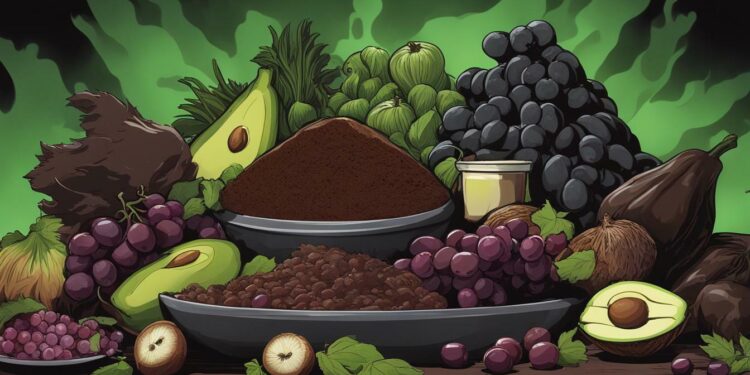
As a dog owner, you want nothing but the best for your furry friend. This includes providing a safe and healthy diet. However, some foods that are safe for humans can be toxic to dogs. It’s crucial to familiarize yourself with the substances that can harm your dog to protect their health.
Knowing the toxic foods for dogs can help you avoid accidentally feeding your pet harmful substances. Some of these toxic foods include chocolate, xylitol, grapes and raisins, onions and garlic, avocado, alcohol, caffeine, dairy products, nuts and seeds, and raw meat and bones. Familiarizing yourself with the potential dangers associated with these foods can help you keep your pet safe.
In this comprehensive article, we’ll delve into the reasons these foods are toxic to dogs and the associated risks. By educating yourself, you can take necessary precautions to keep your furry friends healthy and happy.
Understanding the Dangers of Toxic Foods
As a responsible pet owner, it is crucial to understand the potential dangers of toxic foods for dogs. Feeding your canine companion with the wrong type of food can lead to severe health issues, including diarrhea, vomiting, and even death.
Dogs have unique dietary requirements, and certain foods can have severe consequences on their health. What may be safe for human consumption can be toxic for dogs. It is essential to beware of dangerous foods and harmful food for pets to ensure your dog’s safety and good health.
For example, chocolate is a popular treat for humans, but it is one of the most toxic foods for dogs. Dogs cannot process theobromine, a substance present in chocolate, as efficiently as humans can, which can lead to severe health problems. Similarly, other human foods and ingredients such as xylitol, grapes, onions, garlic, and alcohol can cause severe harm to dogs.
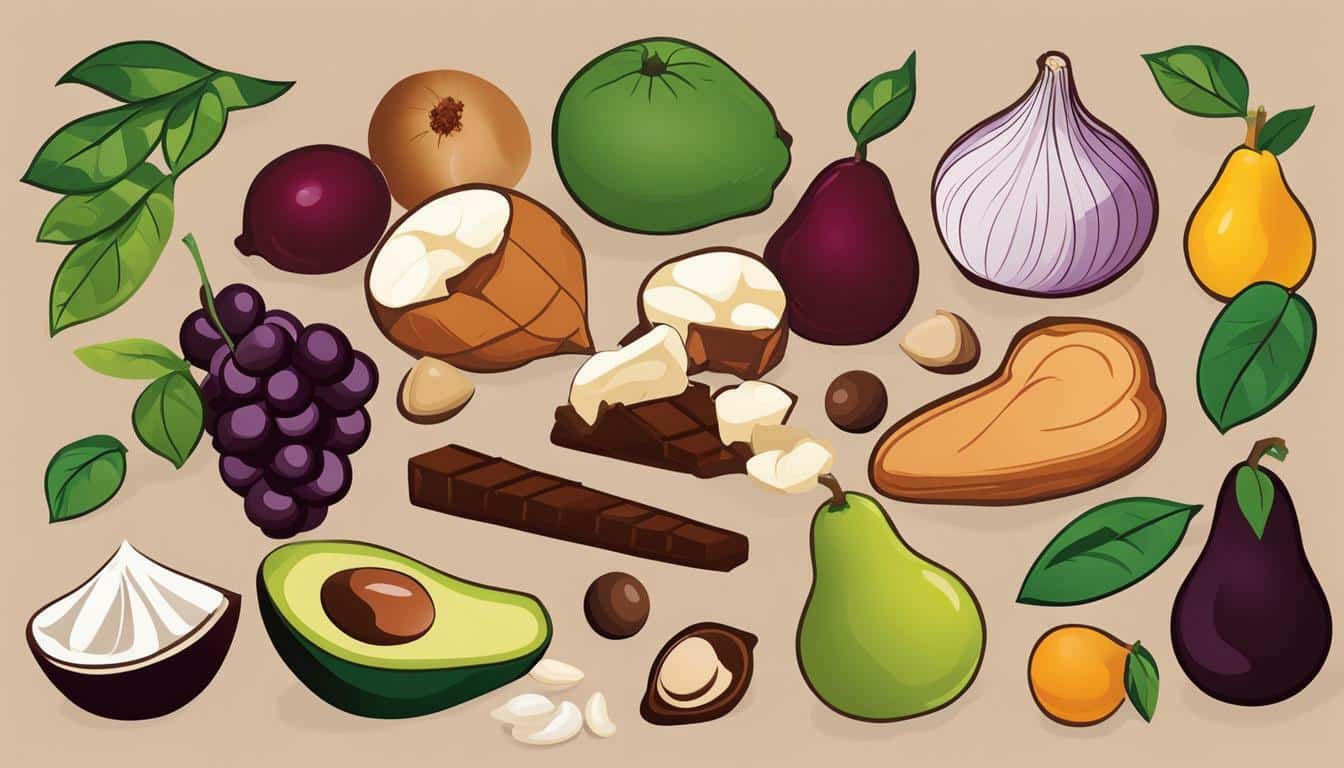
It is crucial to understand the symptoms of toxic food poisoning in dogs to avoid unnecessary complications. Symptoms may include but are not limited to, lethargy, trembling, loss of coordination, and seizures.
The best way to protect your dog from toxic foods is to understand what they are and keep them out of reach. Make sure to properly store and dispose of food items that are harmful to dogs, and do not let them eat scraps from your table.
In summary, understanding the dangers of toxic foods is essential for keeping your dog healthy and safe. By observing the harmful foods for dogs, you can take necessary precautions and prevent accidental ingestion. Always consult with your veterinarian if you suspect your dog has consumed something toxic.
Chocolate: A Sweet Treat That’s Toxic to Dogs
Chocolate is a delectable treat enjoyed by many humans, but it can be toxic to dogs. This is because chocolate contains a substance called theobromine, which can be difficult for dogs to metabolize. The level of theobromine in chocolate depends on the type of chocolate, with darker chocolate containing higher levels of theobromine compared to milk chocolate.
If your dog ingests chocolate, it can lead to a range of symptoms, including vomiting, diarrhea, restlessness, seizures, and even death in severe cases. The severity of symptoms will depend on the amount of chocolate consumed. As a general rule, the smaller the dog, the more dangerous the amount of chocolate intake.
If you suspect that your dog has ingested chocolate, it is crucial to seek veterinary attention immediately. Your veterinarian may induce vomiting to prevent further absorption of theobromine and may provide supportive care to manage symptoms.
To prevent your dog from ingesting chocolate, it is essential to keep it out of reach. Whether you’re enjoying a chocolate bar or baking with chocolate, be sure to store it in a secure location where your dog cannot access it. Additionally, be mindful of any chocolate-containing products in your home, such as hot cocoa mix or chocolate-covered espresso beans.
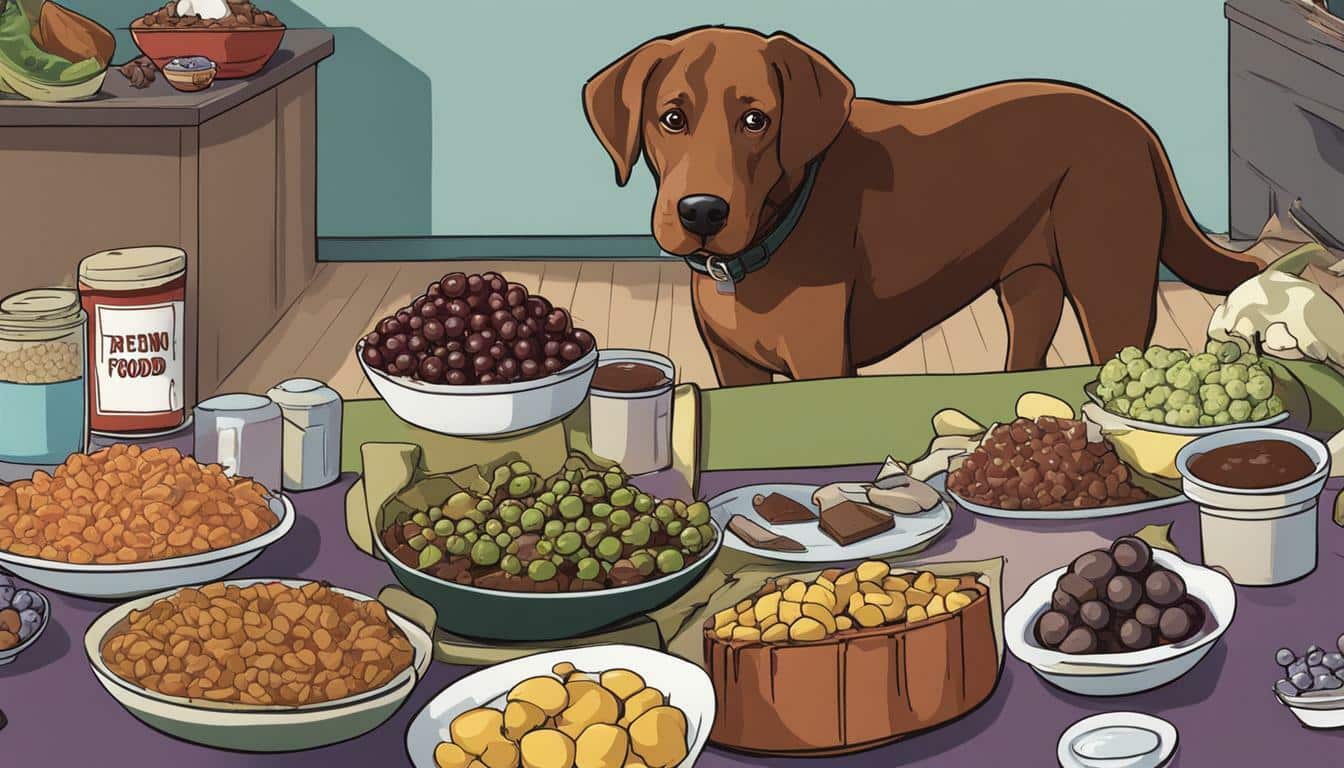
By being aware of the dangers of chocolate and taking appropriate precautions, you can help keep your furry friend safe and healthy. Remember, if you suspect that your dog has ingested chocolate, don’t hesitate to seek veterinary attention.
Xylitol: A Sneaky Sweetener with Deadly Effects
Despite being a common sugar substitute found in many products, xylitol can be extremely toxic to dogs. This artificial sweetener is often found in sugar-free gum, candy, and certain peanut butter brands.
Xylitol can cause a rapid insulin release in dogs, resulting in hypoglycemia, or low blood sugar. Symptoms of xylitol poisoning include vomiting, loss of coordination, and seizures. In severe cases, it can even lead to liver failure.
It’s crucial to take precautions to avoid accidental ingestion of xylitol by your furry friend. Be sure to read labels carefully and keep products containing xylitol out of your dog’s reach. If you suspect your dog has ingested xylitol, seek medical attention immediately.
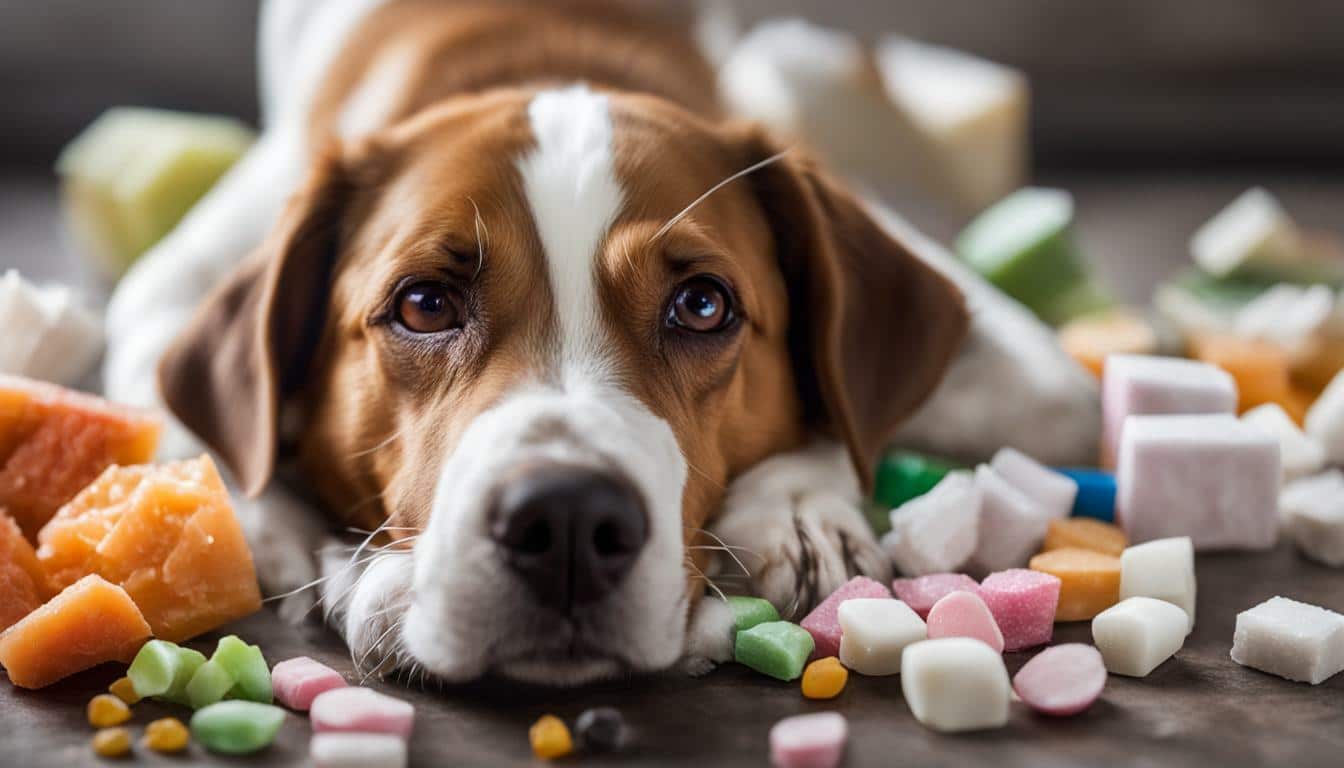
Remember, even a small amount of xylitol can be dangerous for your pet. Always check the labels of the products before giving them to your furry friend. By taking this simple step, you can protect your dog from the harmful effects of xylitol poisoning.
Grapes and Raisins: Tiny Fruits with Big Risks
While grapes and raisins may be small and seemingly harmless, they can be toxic to dogs. Even in small amounts, they can lead to severe complications, such as kidney failure.
The exact substance responsible for the toxicity of grapes and raisins is still unknown, and it can affect dogs differently. Some may show symptoms after eating a small amount, while others may not show any visible symptoms at all.
Common symptoms of grape and raisin poisoning in dogs include vomiting, diarrhea, loss of appetite, lethargy, abdominal pain, and decreased urination. In severe cases, dogs may also experience dehydration, seizures, and even death.
If you suspect your dog has ingested grapes or raisins, seek veterinary attention immediately. Treatment may include inducing vomiting, administering activated charcoal, and providing supportive care, such as IV fluids and medication to prevent kidney damage.
To keep your dog safe, it’s best to avoid feeding them grapes and raisins altogether. If you have a grape or raisin vine in your backyard, make sure to keep your dog away from it. Additionally, make sure to keep any grape or raisin-containing foods out of your dog’s reach, such as trail mix or baked goods.
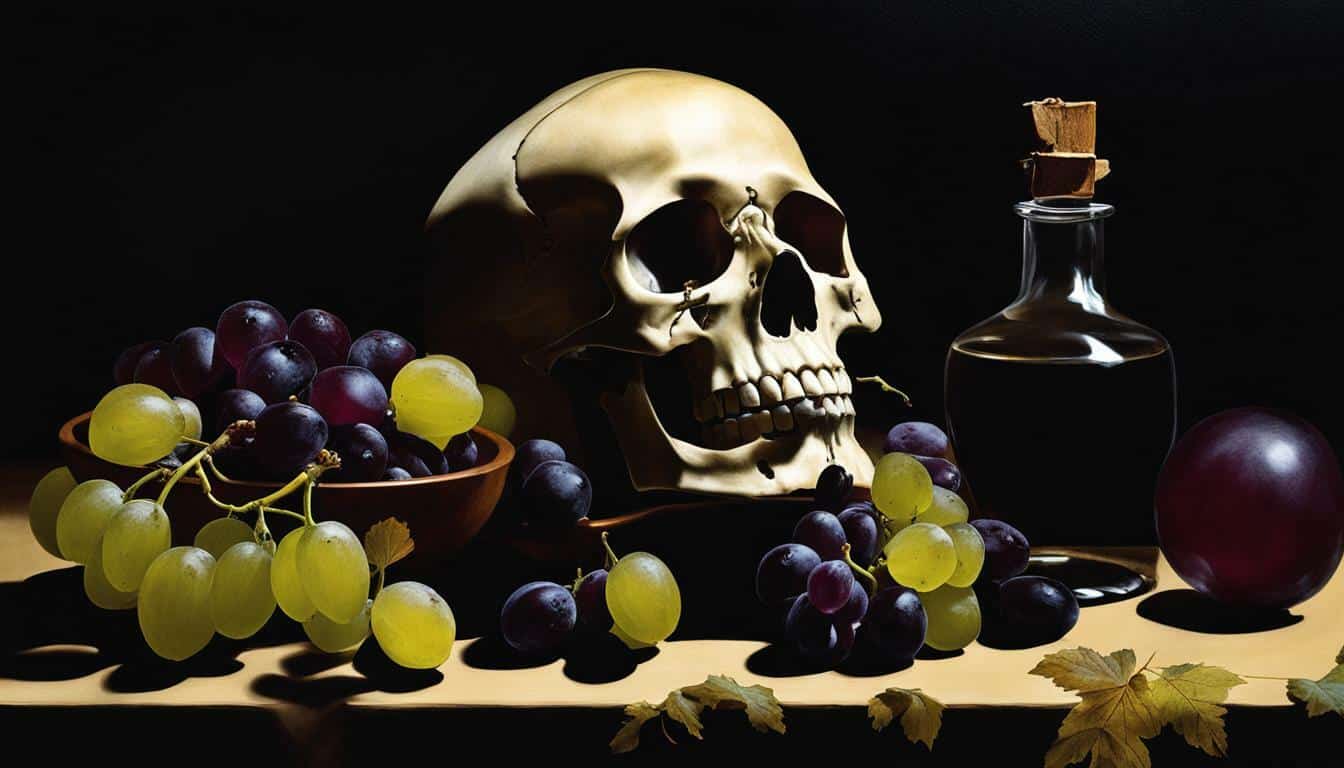
Remember, prevention is key when it comes to toxic foods for dogs. By being aware of what foods to avoid and taking appropriate precautions, you can help keep your furry friend happy and healthy.
Onions and Garlic: Common Culinary Ingredients, Harmful for Dogs
If you are a dog owner, it is important to know that onions and garlic can be harmful to your furry friend. These ingredients are commonly found in many types of cuisine and are frequently used in cooking.
Onions and garlic contain substances called thiosulphates, which can cause anemia in dogs by destroying their red blood cells. The severity of the anemia can vary depending on the quantity consumed and the size of the dog, but in severe cases, it can be life-threatening.
If you suspect that your dog has ingested onions or garlic, symptoms such as vomiting, diarrhea, and lethargy may appear. It is crucial to seek veterinary care promptly if you notice any of these signs.
To avoid unintentional ingestion, keep onions and garlic out of reach of your dogs. If you have to use them, make sure to store them in secure containers away from your furry friends.
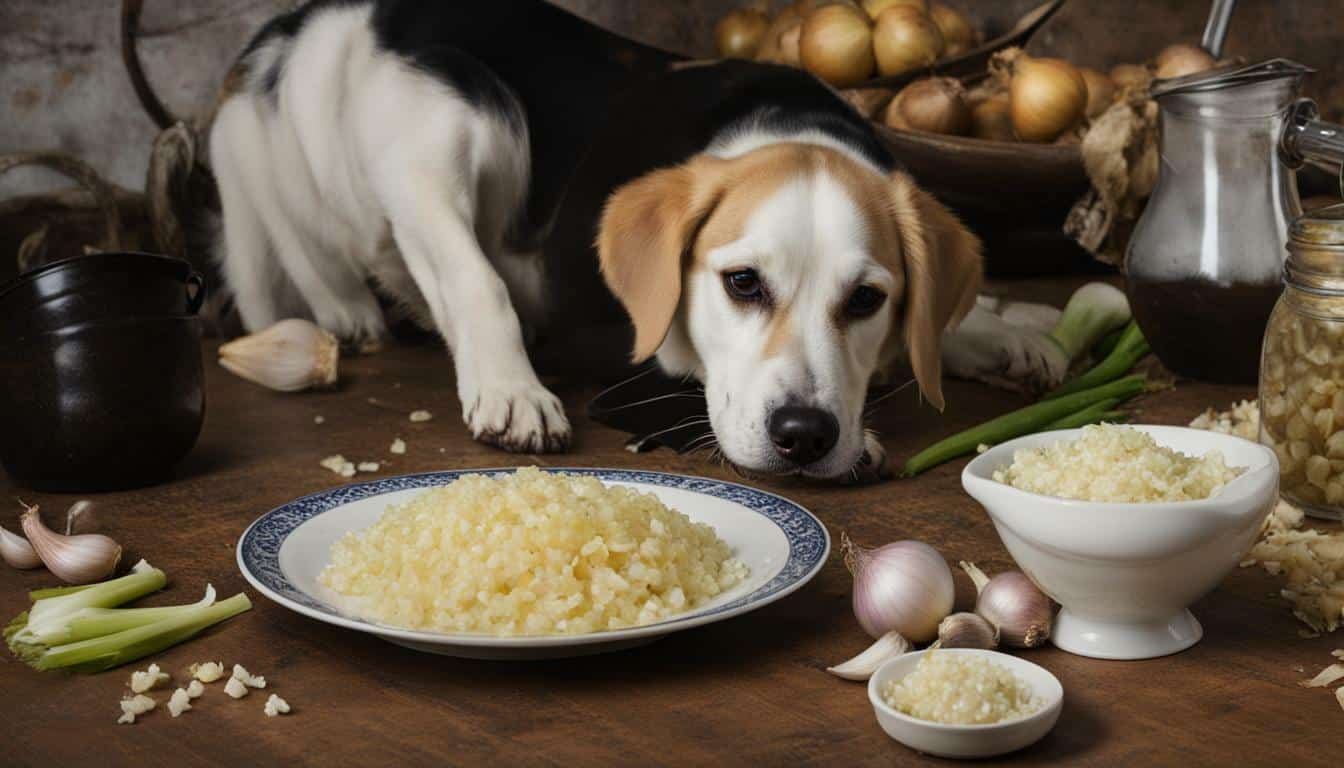
Avoid giving your dogs any human food that has been prepared with onions or garlic, such as soups, stews, or sauces. Look out for any processed foods that contain powdered or dehydrated onions and garlic as well.
Even small amounts of onions and garlic can be toxic for dogs, so be careful when disposing of leftovers or food waste containing these ingredients. Ensure that your trash cans have secure lids, and keep them away from where your dogs can reach them.
If you are unsure about whether a particular food is safe for your dog, consult your veterinarian for more information. Your vet can advise you on the best diet for your dog and recommend safe alternatives if necessary.
Avocado: A Nutritious Fruit with Hidden Risks
Avocado is commonly known as a healthy fruit for humans, but it can be harmful to dogs. The fruit contains a substance called persin, which can cause gastric upset in dogs when consumed in large quantities. The flesh of the fruit is not toxic, but the pit and skin can be difficult for dogs to digest and may cause choking or gastrointestinal blockages.
Toxic foods for dogs such as avocado can lead to a range of symptoms, including vomiting, diarrhea, and difficulty breathing. In severe cases, avocado consumption can even lead to pancreatitis, a life-threatening condition that affects the pancreas.
If you suspect your dog has consumed avocado, monitor them closely for any signs of illness. Consult with your veterinarian immediately to determine the best course of action.
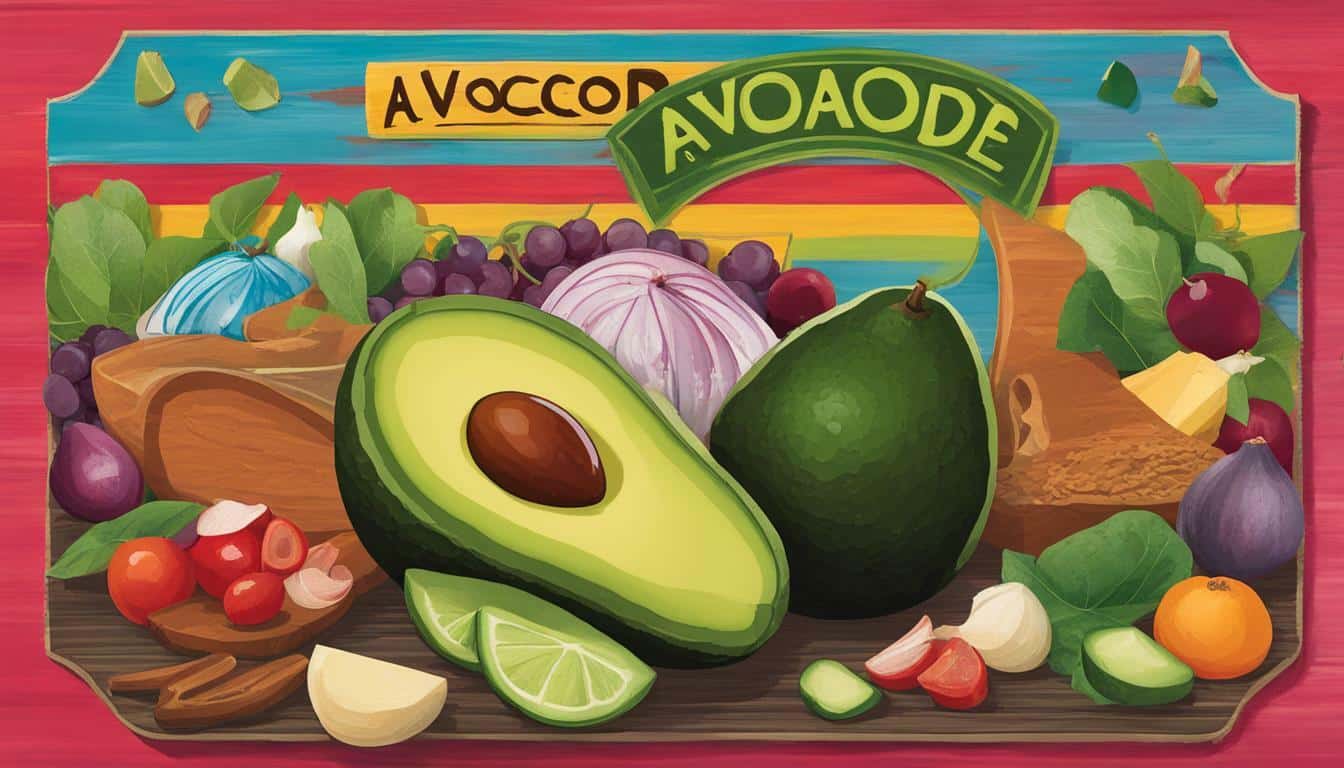
As a responsible pet owner, it is important to be aware of the foods to avoid feeding dogs, including avocado. Keep all avocados and products that contain avocado out of your dog’s reach to prevent accidental ingestion. Choose alternative fruits and vegetables for your dog’s diet that offer similar nutritional benefits without the associated risks.
Alcohol: A Poisonous Substance for Dogs
Alcohol is toxic to dogs and should never be given to them. Even small amounts of alcohol can have severe consequences on your furry friend’s health. Dogs can experience alcohol poisoning just as humans do, but they are much more sensitive to its effects.
Symptoms of alcohol poisoning in dogs can include vomiting, diarrhea, difficulty breathing, tremors, seizures, and even coma or death. Signs of alcohol poisoning can surface within 30 minutes to an hour of ingestion.
It’s essential to ensure that alcohol is kept out of your dog’s reach. This includes alcoholic beverages, foods cooked with alcohol, and other household products containing alcohol, such as mouthwash and cleaning agents.
In the event your dog ingests alcohol, contact your veterinarian immediately. Treatment for alcohol poisoning typically involves supportive care, such as IV fluids to prevent dehydration and medication to control seizures or other symptoms.
Keep your dog safe by avoiding any exposure to alcohol, and remember to always consult with your veterinarian if you suspect your dog has ingested something toxic.
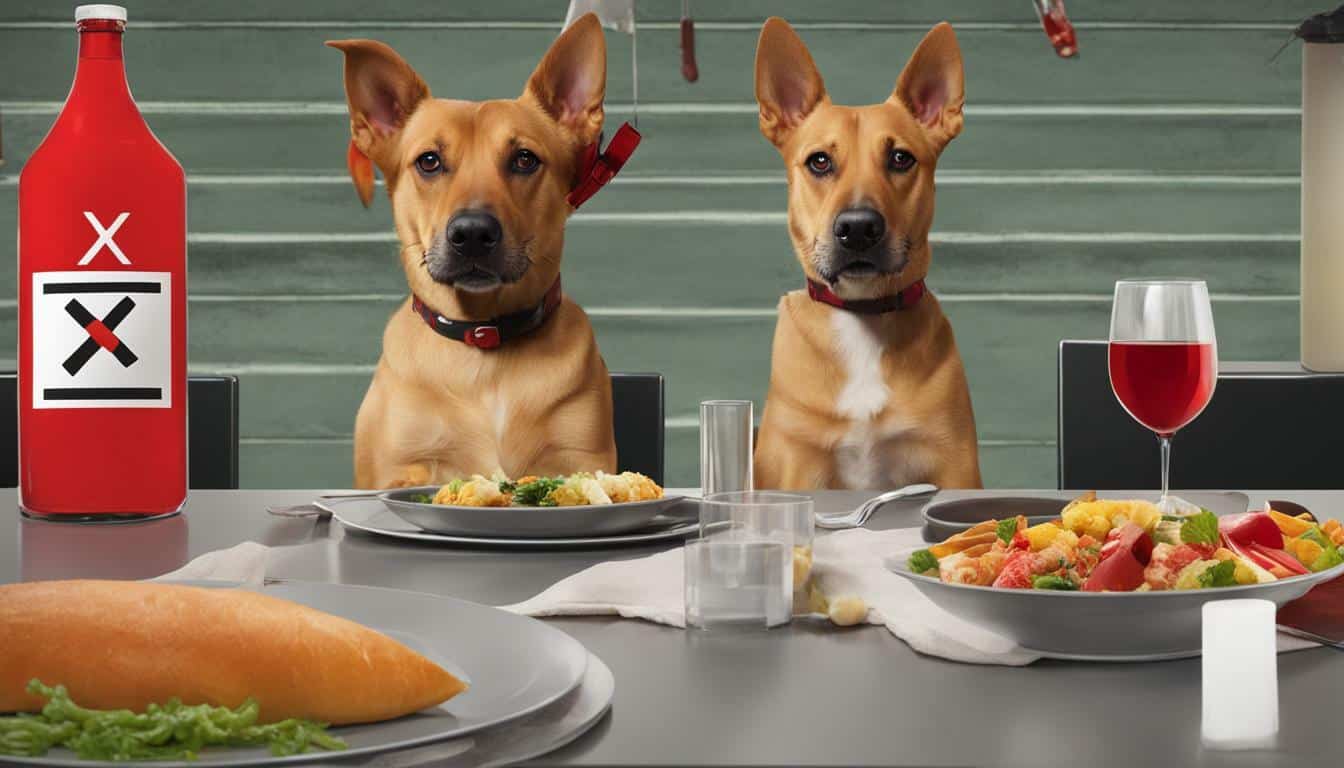
If you’re someone who can’t start the day without a cup of coffee, you’re probably familiar with the boost of energy that caffeine can provide. However, for dogs, caffeine is not just a mild stimulant; it can have harmful effects on their health.
Caffeine is a central nervous system stimulant, which means that it can cause rapid breathing, heart palpitations, and even seizures in dogs. If your dog ingests caffeine, they may experience restlessness, vomiting, and tremors. In severe cases, caffeine poisoning can even be fatal.
It’s not just coffee that you need to watch out for. Other caffeinated drinks, such as tea and soda, as well as certain medications, can also contain caffeine. If you suspect your dog has ingested anything containing caffeine, contact your veterinarian immediately.
To keep your dog safe, remember to keep all caffeinated products out of reach and never share your caffeinated drinks or foods with your furry friend.

While dairy products are a common addition to many dogs’ diets, they can be harmful, especially if your dog is lactose intolerant. Lactose is a natural sugar found in milk and dairy products, and many dogs are not able to digest it properly. If your dog is lactose intolerant, feeding them dairy products can lead to digestive issues such as diarrhea, vomiting, and stomach pain.
To avoid harmful foods for dogs, it is best to avoid feeding your furry friend dairy products unless otherwise instructed by your veterinarian.
If you want to provide your dog with a calcium-rich diet without dairy, there are alternative options available. Vegetables such as broccoli and kale, as well as fish like salmon and sardines, are excellent sources of calcium for dogs and are less likely to cause digestive problems.
Remember to consult your veterinarian if you suspect your dog is lactose intolerant or if you have any concerns about their diet.
While nuts and seeds are often touted as healthy snacks for humans, they can be harmful to dogs. Some types of nuts and seeds contain toxins that can lead to serious health problems. It’s crucial to be aware of the specific nuts and seeds that are dangerous for dogs and to avoid feeding them to your furry friends.
Macadamia nuts, for example, are highly toxic and can cause vomiting, hyperthermia, and tremors in dogs. Similarly, walnuts and pecans can cause gastrointestinal upset and obstruction if ingested in large amounts. Seeds such as chia and flax contain a high concentration of omega-3 fatty acids, which can cause digestive issues and potentially lead to pancreatitis in dogs.
It’s important to keep all nuts and seeds out of your dog’s reach and to avoid giving them as treats. If you suspect your dog has ingested any of these foods, contact your veterinarian immediately. Remember, prevention is key to keeping your dog safe from toxic foods.
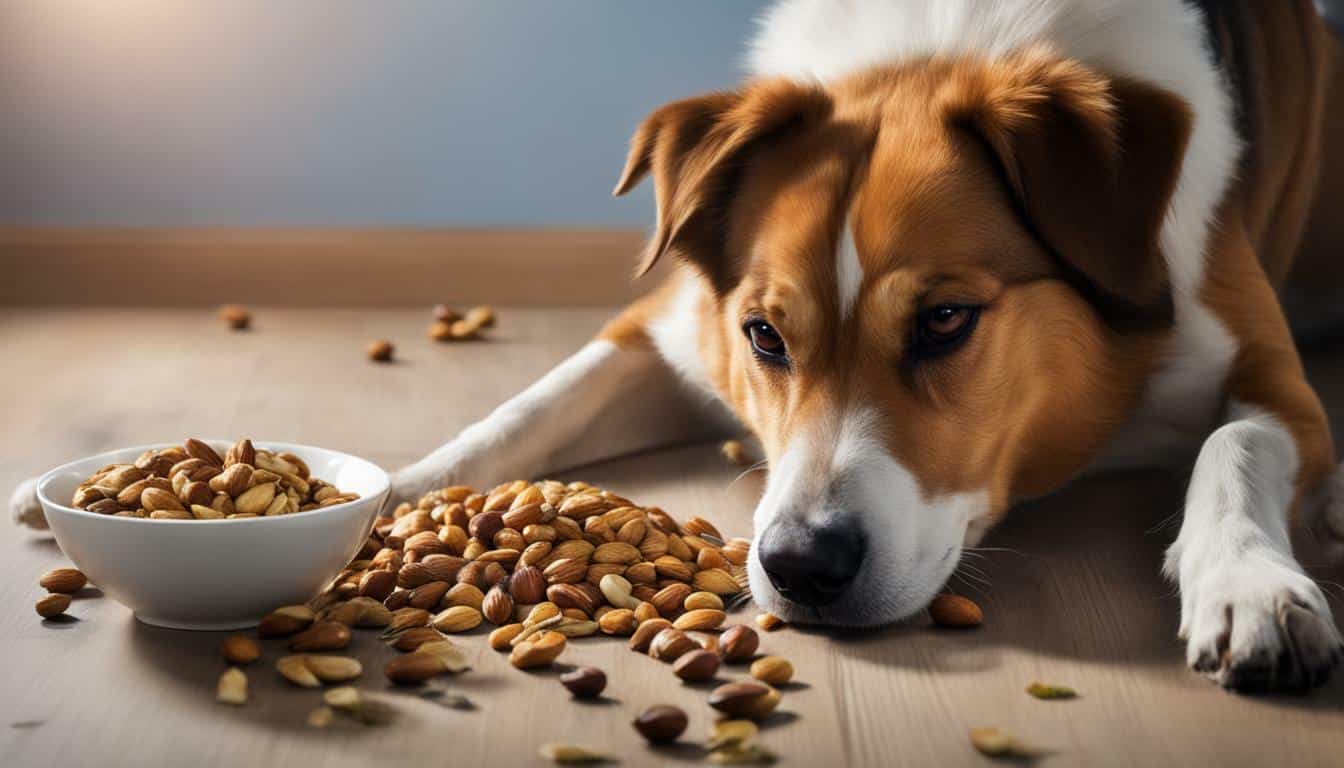
While dogs are natural carnivores and love a good bone to chew on, it’s important to exercise caution when it comes to feeding them raw meat and bones. Raw meat can carry harmful bacteria, such as salmonella and E. coli, that can cause vomiting, diarrhea, and even death in some cases. Additionally, bones can pose a choking hazard or cause internal damage if swallowed.
If you choose to feed your dog raw meat and bones, it’s crucial to ensure that they come from a reputable source and are handled and stored properly. Always supervise your dog while they are chewing on bones and remove any small pieces that may break off to avoid choking.
If you prefer not to take the risk with raw meat and bones, there are plenty of other options for providing your dog with a balanced diet. Consider high-quality commercial dog food, or cooked meats that are free of bones and seasonings. Your veterinarian can also provide guidance on safe and nutritious food options for your furry friend.
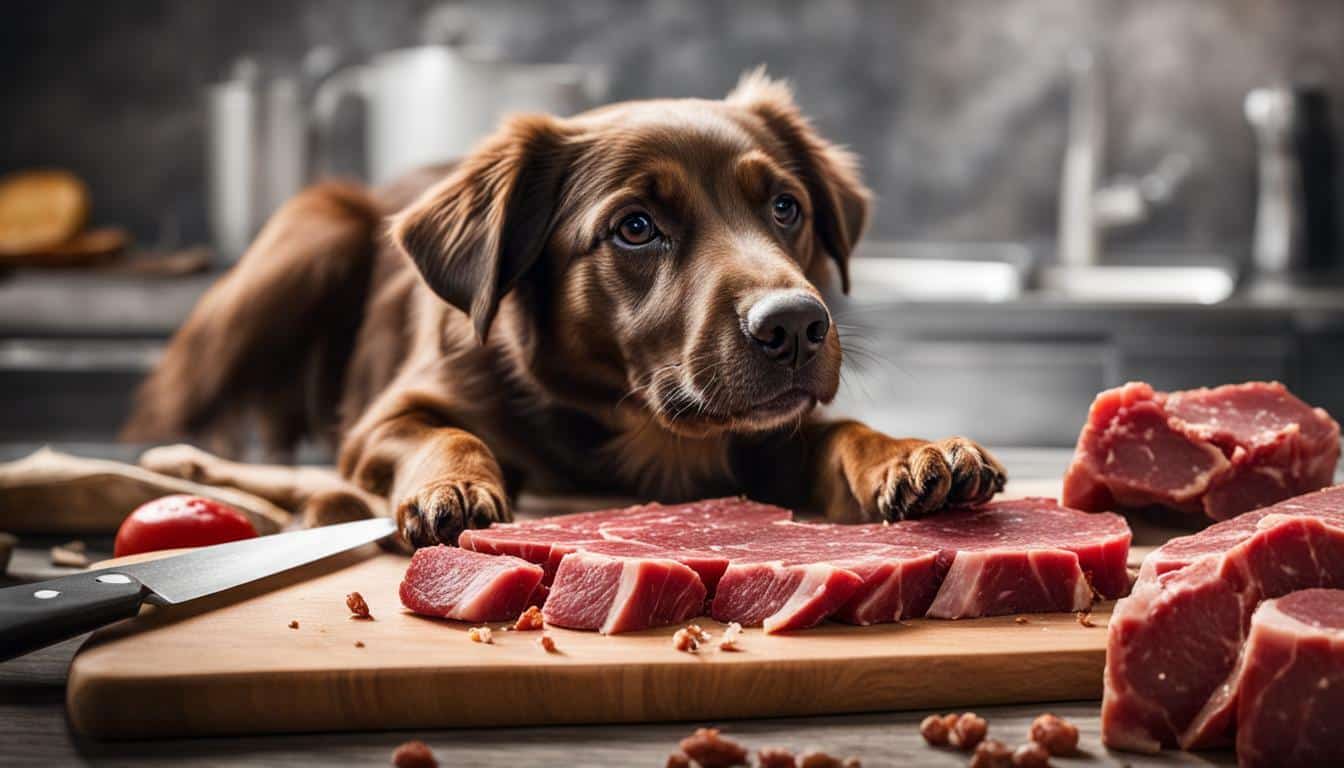
Other Foods to Avoid to Keep Your Dog Safe
In addition to the previously discussed toxic foods, there are several other substances that can be harmful to dogs. It’s important to keep these out of your dog’s reach to prevent accidental ingestion and potential health risks.
- Chewing gum: Many types of chewing gum contain xylitol, which can cause seizures, liver failure, and other serious health issues in dogs.
- Fatty foods: Foods high in fat, like bacon and fried chicken, can lead to pancreatitis in dogs, a painful and potentially life-threatening condition.
- Artificial sweeteners: In addition to xylitol, other artificial sweeteners like sorbitol and aspartame can cause digestive issues and diarrhea in dogs.
- Certain fruits and vegetables: While many fruits and vegetables can be healthy for dogs in moderation, some, like onions, avocados, and grapes, can be toxic and cause various health problems.
- Caffeine: Along with coffee and tea, other caffeine-containing products like energy drinks can cause restlessness, rapid breathing, and muscle tremors in dogs.
- Alcohol: Even a small amount of alcohol can be harmful to dogs, leading to vomiting, disorientation, and potentially life-threatening complications.
- Bones: Certain types of bones, like chicken bones, can splinter and cause choking or other digestive issues in dogs.
By avoiding these harmful foods and substances, you can help keep your dog safe and healthy. Remember to always consult your veterinarian if you suspect your dog has ingested something toxic.
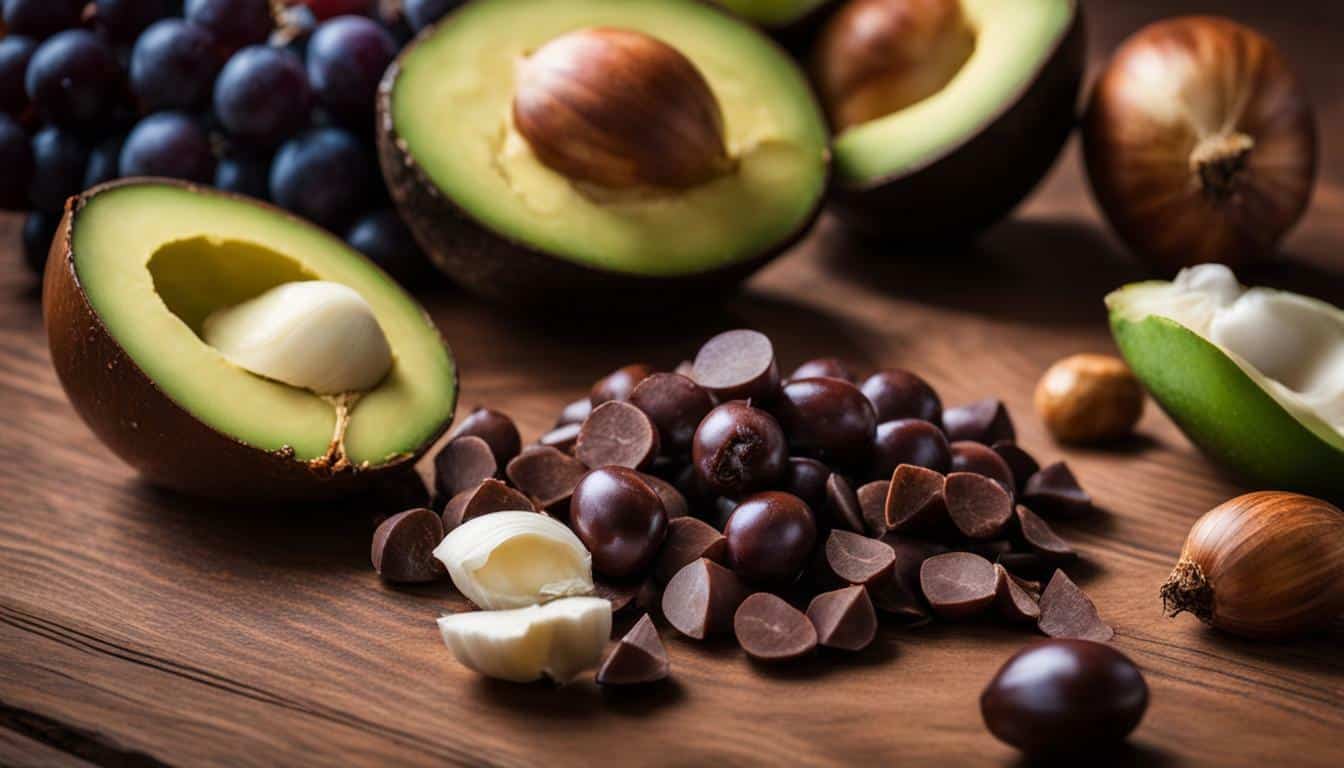
Conclusion
Protecting your dog from harmful and toxic foods requires vigilance and education. By familiarizing yourself with the specific foods and substances that can pose a risk to your furry friend, you can take the necessary precautions to ensure their safety and health. Remember to keep common toxic foods like chocolate, xylitol, grapes and raisins, onions and garlic, avocado, alcohol, caffeine, dairy, nuts and seeds, and raw meat and bones, out of your dog’s reach. Additionally, be mindful of other potential hazards, such as certain herbs, spices, and condiments, and always consult with your veterinarian if you suspect your dog has ingested something toxic. As a responsible pet owner, it is your duty to keep your dog safe and healthy. With the right knowledge and care, you can provide your furry friend with a long and happy life.
FAQ
Q: What are toxic foods for dogs?
A: Toxic foods for dogs are substances that can be harmful or even deadly if ingested. These include certain human foods that dogs cannot tolerate or metabolize properly.
Q: Which foods should I avoid feeding my dog?
A: It is important to avoid feeding your dog chocolate, xylitol, grapes and raisins, onions and garlic, avocado, alcohol, caffeine, dairy products, nuts and seeds, and raw meat and bones. These foods can have severe consequences on your dog’s health.
Q: Why is chocolate toxic to dogs?
A: Chocolate contains theobromine and caffeine, substances that dogs cannot efficiently metabolize. Ingesting chocolate can lead to symptoms such as vomiting, diarrhea, increased heart rate, tremors, and even seizures.
Q: What are the dangers of xylitol for dogs?
A: Xylitol is a sugar substitute that can cause a rapid release of insulin in dogs, leading to a dangerous drop in blood sugar levels. This can result in symptoms such as weakness, seizures, and liver failure.
Q: Why are grapes and raisins harmful to dogs?
A: The specific toxin in grapes and raisins is unknown, but even small amounts can cause kidney failure in dogs. Symptoms may include vomiting, diarrhea, decreased appetite, and decreased urination.
Q: What substances in onions and garlic are toxic to dogs?
A: Onions and garlic contain compounds called thiosulphates, which can cause damage to a dog’s red blood cells, leading to anemia. Symptoms may include weakness, pale gums, and increased heart rate.
Q: Why is avocado dangerous for dogs?
A: Avocado contains a toxin called persin, which can be toxic to dogs in large amounts. It can cause symptoms such as vomiting, diarrhea, and difficulty breathing.
Q: How does alcohol affect dogs?
A: Alcohol has similar effects on dogs as it does on humans, but it takes much less to cause poisoning. Ingesting alcohol can lead to symptoms such as lack of coordination, vomiting, depression, and potentially coma or death.
Q: Why is caffeine harmful to dogs?
A: Dogs are more sensitive to caffeine than humans, and ingesting it can cause symptoms such as restlessness, rapid breathing, increased heart rate, muscle tremors, and even seizures.
Q: Why are dairy products potentially harmful for dogs?
A: Many dogs are lactose intolerant, meaning they lack the enzyme needed to properly digest lactose, the sugar found in milk. Feeding dogs dairy products can result in symptoms such as diarrhea, vomiting, and gas.
Q: Which nuts and seeds should I avoid feeding my dog?
A: Certain nuts and seeds, such as almonds, walnuts, macadamia nuts, and sunflower seeds, can be toxic to dogs. Ingesting them can cause symptoms such as weakness, tremors, and in severe cases, paralysis.
Q: Why should I avoid feeding my dog raw meat and bones?
A: Raw meat and bones can pose risks of bacterial contamination, including Salmonella and E. coli. Additionally, bones can splinter and cause choking, blockages, or tears in the digestive tract.
Q: Are there any other foods I should avoid to keep my dog safe?
A: Yes, there are other foods that can be toxic to dogs. These include foods such as caffeine, alcohol, onions and garlic, grapes and raisins, chocolate, xylitol, avocados, and more. It is important to be aware of these substances and keep them out of your dog’s reach.
Q: What should I do if I suspect my dog has ingested something toxic?
A: If you suspect your dog has ingested something toxic, it is crucial to contact your veterinarian immediately. They can provide guidance on the necessary steps to take and may recommend inducing vomiting or bringing your dog in for emergency treatment.

